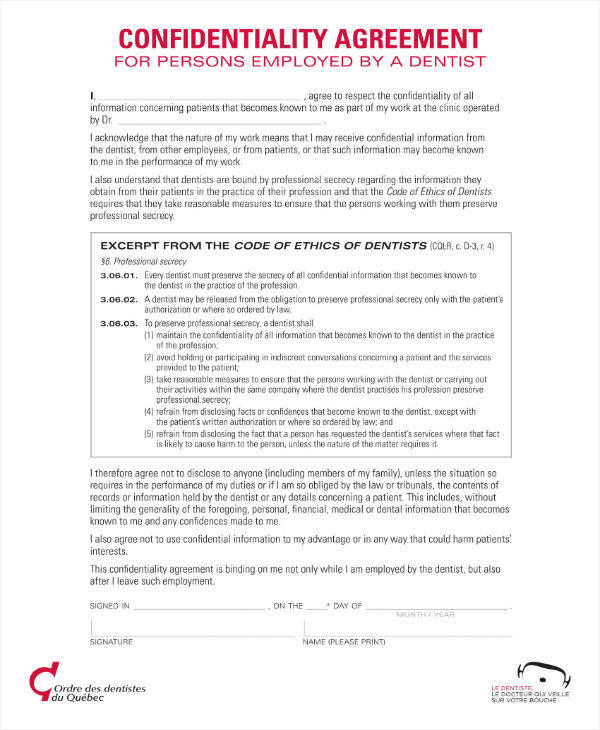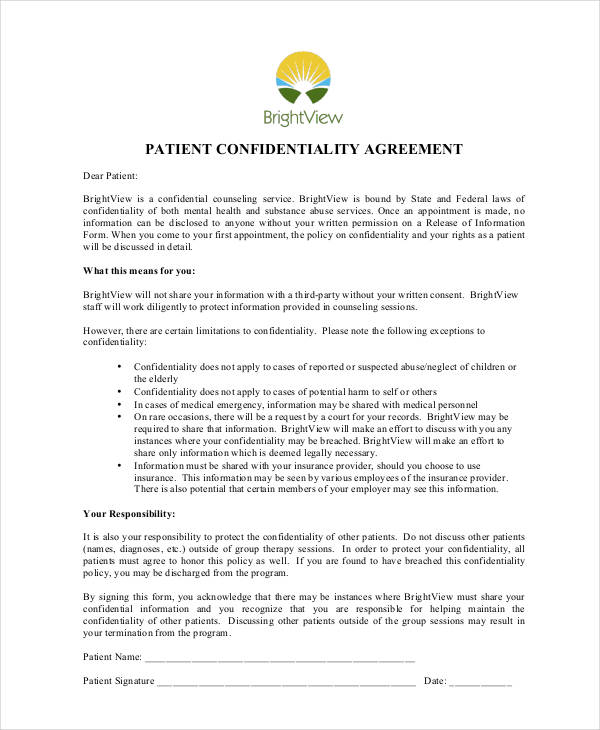Why Patient Confidentiality In Healthcare Is Important
catalog patient health records access sharing and confidentiality of treaties and agreements medicaid, schip, and health insurance: fy2008 law enforcement and intelligence information: the congressional role Individuals have a right to access their own health records, and in limited circumstances, access to the records of other people. the government has made a commitment that patients should gain access to their health records within 21 days following a request. access to health records may also be granted in limited circumstances for relatives. The hipaa privacy rule* creates new rights for individuals to have access to their health information and medical records (referred to as "protected health information"), to obtain copies and to request corrections. 13 it also specifies when an individual's authorization is required for disclosure of protected health information; authorization.
Medicalrecords Protecting Patientconfidentiality
Share hipaa for professionals menu. patient health records access sharing and confidentiality historians, and others to access old or ancient records on deceased individuals for historical purposes. during the 50-year period of protection, the personal representative of the decedent (i. e. the person under applicable law with authority to act on behalf of the decedent or the decedent’s estate. Clinical systems can allow healthcare professionals in different organisations to access patient records. we believe the following principles are best practice in allowing records to be shared to aid patient care whilst protecting confidentiality.
This briefing describes how patients may request access to their records, and the circumstances in which access to the records of others may be allowed, including new requirements introduced by the eu general data protection regulation (gdpr) and the data protection act 2018. it also describes statutory and public interest disclosures of patient information; information sharing rules for people who lack mental capacity; and access to information on hereditary conditions for relatives. It is imperative that health care organizations have strong practices in place to maintain confidentiality and protect their patients’ privacy. protecting patient privacy is vital to the physician-patient relationship. patients need to feel confident that information they share with healthcare patient health records access sharing and confidentiality providers will not be disclosed without their.
Patient Health Records Access Sharing And Confidentiality
Confidentiality in health care refers to the obligation of professionals who have access to patient records or communication to hold that information in confidence. rooted in confidentiality of the patient-provider relationship that can be traced back to the fourth century bc and the oath of hippocrates, this concept is foundational to medical. If a patient has died, the rule of confidentiality still stands, but if the records relate to publicly funded care, certain categories of people, including next of kin, can apply for access to the patient health records access sharing and confidentiality medical records under the freedom of information act. Jan 18, 2017 · start preamble start printed page 6052 agency: substance abuse and mental health services administration, hhs. action: final rule. summary: the department of health and human services (hhs) is issuing this final rule to update and modernize the confidentiality of alcohol and drug abuse patient records regulations and facilitate information exchange within new health care models while. Mgl c. 111, §70 copies of medical records; fees. mgl c. 111, § 70e patients' rights law. mgl c. 111, § 70f hiv testing. mgl c. 112, § 12cc inspection of records by patient or representative. mgl c. 112, § 172a mental health client confidentiality. mgl c. 123, § 36 mental health records. mgl c. 149, § 19a copies of reports of employer-required physical exams. mgl c. 176o, § 27 protecting access.
Health Information Of Deceased Individuals Hhs Gov
Individuals have a right to access their own health records, and in limited circumstances, access to the records of other people. the government has made a commitment that patients should gain access to their health records within 21 days following a request. access to health records may also be granted in limited circumstances for relatives or in. advanced at the time of diagnosis although most patients respond to initial treatment, relapse is common with the approval of new therapies and better biomarkers of response, health outcomes for women with advanced ovarian cancer have improved significantly join dr bradley monk as he describes the shifting landscape for ovarian cancer treatment throughout this activity you will find supportive multimedia hyperlinks that provide access to videos, journal articles, and other resources to The privacy rule sets rules and limits on who can look at and receive your health information to make sure that your health information is protected in a way that does not interfere with your health care, your information can be used and shared: for your treatment and care coordination.
Confidentiality. confidentiality in health care refers to the obligation of professionals who have access to patient records or communication to hold that information in confidence. rooted in confidentiality of the patient-provider relationship that can be traced back to the fourth century bc and the oath of hippocrates, this concept is foundational to medical professionals’ guidelines for confidentiality (mcway, 2010, p. 174).
First aid records (not including medical histories) of one-time treatment and subsequent observation of minor scratches, cuts, burns, splinters, and the like which do not involve medical treatment, loss of consciousness, restriction of work or motion, or transfer to another job, if made on-site by a non-physician and if maintained separately from the employer's medical program and its records, and. Hipaa provides personal representatives of a patient with the same rights to request and obtain health information as the individual, including the right to obtain a complete medical record under the hipaa right of access. parents of minor children (typically under age 18) are generally the personal representatives of their children. If the ehr system does not allow for procedures to maintain adolescent confidentiality, the obstetrician–gynecologist or staff should inform the patient that parents or guardians will have access to the records, and the patient should be given the option of referral to a health care provider who is required to provide confidential care. Electronic medical records offer advantages for storing and accessing patient health information, which may improve the management of patient care. however, the features patient health records access sharing and confidentiality that make electronic records desirable—accessibility, transferability, and portability of patient health information—also present privacy risks.
Congressional research reports.


Healthrecords and patient confidentiality by elizabeth parkin inside: 1. accessing and sharing patient health records. 2. sharing confidential patient information: number 7 september 2015 2 to access records 5 1. 2 limiting access to health records 5 1. 3 providing information to relatives and carers 5 1. 4 access to deceased patients. Phi includes what physicians and other health care professionals typically regard as a patient's personal health information, such as information in a patient's medical chart or a patient's test results, as well as an individual's billing information for medical services rendered, when that information is held or transmitted by a covered entity.

Jul 15, 2020 · this final rule makes changes to the department of health and human services' (hhs) regulations governing the confidentiality of substance use disorder patient records. these changes were prompted by the need to continue aligning the regulations with advances in the u. s. health care delivery. This period of protection for decedent health information balances the privacy interests of surviving relatives and other individuals with a relationship to the decedent, with the need for archivists, biographers, historians, and others to access old or ancient records on deceased individuals for historical purposes. Patientconfidentiality isn’t just a good idea; it’s the law. under the health insurance portability and accountability act (hipaa), your medical records and other health information you provide to healthcare professionals and facilities, and insurers is privileged information. they cannot share it without your consent, unless the safety. The usual basis for sharing information for a patient’s own care is the patient’s consent, whether that is explicit or implied (see paragraph 13 for definitions). you may rely on implied consent to access relevant information about the patient or to share it with those who provide (or support the provision of) direct care to the patient if all of the following are met.
Patient health records: access, sharing and confidentiality (514 kb, pdf) download full report download ‘patient health records: access, sharing and confidentiality’ report (514 kb, pdf) individuals have a right to access their own health records, and in limited circumstances, access to the records of other people. It is imperative that health care organizations have strong practices in place to maintain confidentiality and protect their patients’ privacy. protecting patient privacy is vital to the physician-patient relationship. patients need to feel confident that information they share with healthcare providers will not be disclosed without their consent.
‡ all clinics and/or providers who participate in title x grant programs must follow federal regulations regarding confidentiality per 42 cfr 59. 11. sharing, protecting and accessing health information health records include personal health and other identifying information. there are laws in place that help make. She provides guidance and challenge to the government on data issues such as patient confidentiality, information sharing and avoiding abuse of public trust in how health and care data are used the latest guidance on how to achieve data standards is called the data security and protection (dsp) toolkit. Jan 19, 2021 · approval should be sought from an ethics committee to access patient data. structure and content of health and care records. benefit from agreements involving the sharing of health and.
